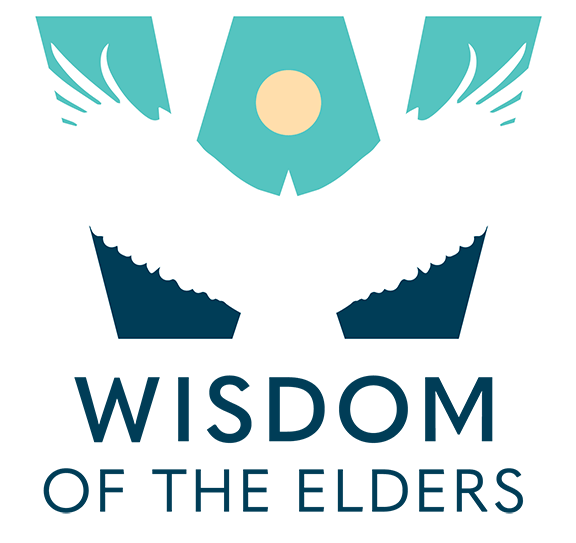Vivian Harrison
with Bruce Crespin
[audio:https://www.wisdomoftheelders.org/prog304/mp3/304_ac.mp3]Arlie Neskahi:
The arts of basketweaving, beadwork, and many other ancient cultural practices, are alive and well in the Yakama Nation today. We can still enjoy these arts thanks to the dedicated culture bearers who take on the responsibility of learning the art and transmitting it to the next generation. On today’s Artists Circle, Bruce Crespin introduces Yakama basket weaver and song-carrier Vivian Harrison, who takes seriously her calling as a tribal artist.
Vivian Harrison:
I used to see these root digging bags and huckleberry baskets, and the cornhusk bags, and I would just look at them. I’d turn them over in my hand and look at them, and look at them, and wonder how they were put together.
Bruce Crespin:
Yakama basket weaver Vivian Harrison realizes that for traditional Yakama ways of life to be revived among her people, they must be shared.
Vivian Harrison:
One of the teachings for our people is that if we have enough for ourselves to survive through the season, then anything extra is for to share, to giveaway. It’s unbecoming to be greedy, to keep and to hoard. It’s um, just not a good thing.
Bruce Crespin:
Ceremonies, commemorating major life events, such as marriage, the birth of a child, and deaths, are important times for feasting, prayer, songs, and the giving of gifts. Some giveaways, at the heart of Yakama culture, are being revived these days as an expression of generosity among Yakama people. On the day we spoke to Vivian, she was asked to help produce gifts.
Vivian Harrison:
My cousin popped in and to ask me to be in a wedding trade, which is really unusual. We don’t have wedding trades very often anymore. When the families of the bride and the families of the groom trade with one another, that would include aunts, grandparents and parents. It would be the women folk on both sides that trade, and this is to recognize the bride and groom, that they are a couple.
Bruce Crespin:
The groom’s family gives deer meat, salmon, buckskin, and other items the men use daily. The bride’s family trades female items like beadwork, baskets, and even roots and berries, as part of the ceremony. Usually, these gifts are produced by the families especially for the wedding trade
Vivian Harrison:
I already have a few things like beaded bags and root bags. And I don’t think i can make a cornhusk by the august. I’m not sure. I’ll just need to make a few more items to be prepared.
Bruce Crespin:
Vivian is also a traditional singer. A kind of cultural memory bank, she preserves the personal medicine songs of her family. A few years ago, she was asked to carry the songs of another singer.
Vivian Harrison:
When I went to a religious ceremony in Oregon I met a lady from Spokane, and she was a medicine singer. Because of her many illnesses, she asked me to help her with her songs, the ones that she carried. I agreed to do this for her to take care of her songs until someone in her own family would be able to sing the songs and take care of them.
Bruce Crespin:
Among the Yakama, medicine songs are presented but once each year at winter dances, to honor the ancestors and give strength and guidance to the owners of the songs. These winter ceremonies are accompanied by giveaways, and have been held between the full moons of December and March since ancient times.
Vivian Harrison:
In our language it’s called “Waampsha” and it’s very, very old. Some of the songs are very, very old. There’s a really long, complicated process before a song can be sung. T he songs have a spirit of their own. They need to be cared for like you would care for a child.
When a song is sung, it’s at a gathering with other singers. At the time when a song is being sung, items that you made with your own hands need to be placed on the floor where you’re going to walk and sing. This is like giving these items to the spirit of the song. After you’re done singing that song, then the people present are allowed to take those items.
As long as I take care of these songs, then these songs, the spirits of these songs, will take care of me and my family.
Bruce Crespin:
For Wisdom of the Elders, I’m Bruce Crespin.

